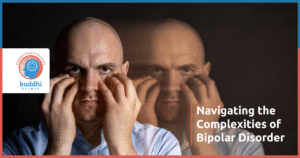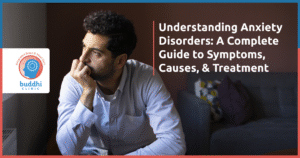Introduction
Challenges of Traumatic Brain Injury (TBI) is a serious medical condition with serious and extensive repercussions in the life of an individual. It is vital to grasp the character of TBI, challenges of TBI, and means to deal with them for the betterment of the quality of life of the patient.
To rise above its complications, a multilateral approach has to be used, which involves medical treatment, rehabilitation, counselling, and behaviour modification.
What is Traumatic Brain Injury?
Traumatic Brain Injury (TBI) is a head injury produced by an external force to the head or body, such as a blow, bump, or jolt to the head or body, or an object entering the skull. TBIs can be mild (concussions) or severe with prolonged unconsciousness or amnesia. Symptoms of TBI are physical, emotional, or cognitive in nature and may be in the form of headache, dizziness, forgetfulness, mood swings, or a lack of concentration. TBI occurs as a consequence of many different incidents, like falls, traffic accidents, injury during sport activities, or acts of violence.
The extent of the impact of the blow, the nature of the injury, and the victim’s general well-being all vary the intensity and degree of TBI.
How to Overcome the Challenges of Traumatic Brain Injury
- Immediate Medical Treatment
The initial step towards the treatment of TBI is to seek immediate medical attention. Early medical intervention can minimise further injury and yield better outcomes. Doctors will perform a complete examination, including neurological tests as well as imaging studies like CT scans or MRIs, to assess the severity of the injury. Immediate medical intervention is necessary in avoiding complications like swelling, bleeding, or second brain injuries.
- Medication Management
Physicians may prescribe drugs to control symptoms like headaches, seizures, or mood disorders. The drugs can reduce pain and enhance the well-being of the patient. One should adhere to the drug regimen as instructed and report any side effects or issues to healthcare providers.
- Rehabilitation
Rehabilitation plays an important role in TBI recovery. It is multidisciplinary rehabilitation that encompasses physical, occupational, and speech therapy. Physical therapy aims to enhance mobility, strength, and coordination. Occupational therapy enables the patient to restore daily living activities and adjust to new challenges. Speech therapy treats disorders of communication, cognitive impairments, and swallowing difficulties. Rehabilitation preserves lost functions, promotes autonomy, and enhances the quality of life.
- Emotional Support
Emotional and psychological counselling is indicated for both people with TBI and their family members. Emotional challenges of TBI, depression, frustration, and anxiety may be managed with the help of counselling, therapy, and support groups. Support groups give them a sense of belongingness and understanding and make it possible for individuals to learn from one another and exchange effective tips and insights from others suffering from the same issues. Mental health specialists can provide coping strategies, stress management, and emotional support to enable individuals to understand the intricacies of TBI.
- Lifestyle Changes
Healthy lifestyle changes need to be implemented to enable recovery as well as general well-being. Proper nutrition, exercise, and sleep can have a great impact on physical and mental well-being. Nutrient-rich foods contain vital vitamins and minerals that enhance brain function and recovery. Regular exercise facilitates circulation, helps to prevent secondary complications, and aids in mood improvement. Sleep and rest also facilitate brain recovery and brain function. A lifestyle free from alcohol, drugs, and smoking is also essential because they all turn out to be a hindrance to the process of recovery and worsen symptoms.
Why Buddhi Clinic for Overcoming Challenges of Traumatic Brain Injury?
At Buddhi Clinic, we are passionate about changing lives with empathetic, integrative, and individualised mental health treatment. Our highly trained professionals are deeply committed to delivering evidence-based treatments specifically designed to meet your specific needs.
Are you someone, or someone you know, dealing with anxiety, depression, stress, or relationship issues? Be assured that we provide a safe, supportive, and non-judgemental environment for healing and development.
WHY US?
Expert Care You Can Trust:
Our counsellors and therapists are trained in the most recent, most beneficial therapeutic techniques so you can count on receiving the best care possible for bipolar disorder and other issues.
A Whole-Person Healing Process:
We don’t just treat symptoms. We make sure to work with you to address emotional, social, and psychological needs to promote recovery and balance for the long term.
Individualised Care Plans:
Two journeys aren’t alike. Which is why we develop unique, personalised plans designed to work best for you based on your strength and desires.
Easily Accessible Online Counselling:
Stay at home but still reach world-class therapy with our versatile online sessions, so it’s simple and easy to put self-care first like never before.
Choose Buddhi Clinic for a caring, thorough, and individualised approach to treating bipolar disorder. Allow us to assist you in making that first step toward a brighter, more balanced future.
Conclusion
There must be a multi-dimensional and holistic strategy for the recovery from Traumatic Brain Injury trauma. With immediate medical care, medication management, rehabilitation, emotional support, and changes in lifestyle, individuals with TBI can enhance the quality of life and achieve positive results. Patients must be patient and dedicated throughout the healing process since recovery takes time and dedication. With correct interventions and care, patients with TBI are able to live normal lives given the complications surrounding the condition.
FAQs
1.What are some of the factors that cause TBI?
Falls, vehicle accidents, sports, and violence can cause traumatic brain injury.
2.What are some of the TBI symptoms?
Major symptoms include headache, dizziness, memory loss, mood swings, and problems concentrating.
3.How is TBI diagnosed?
Traumatic brain injury can be diagnosed through historical, physical, and imaging studies such as CT or MRI.
4.What are some of the effects of TBI in the long run?
Some of the effects of traumatic brain injury are cognitive impairment, emotional disturbances, and physical disabilities.
5.Is TBI preventable?
Traumatic brain injuries can be prevented by a few safety measures. Using a helmet, wearing a seatbelt, and having secure surroundings can be preventive.






